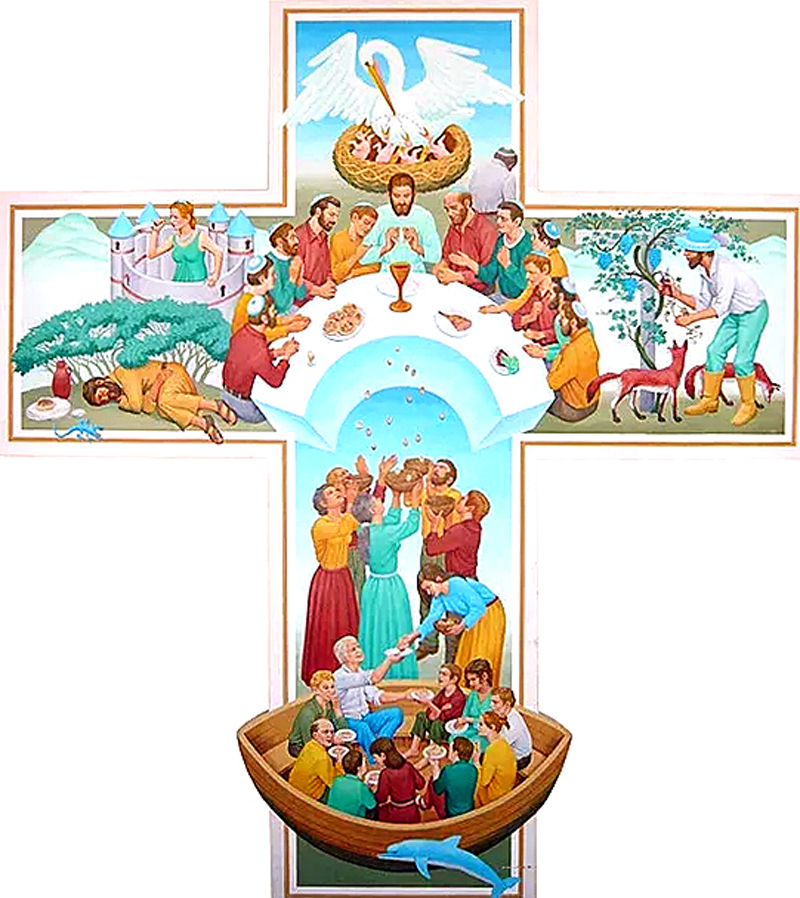
Cross of the Eucharist
Peter Koenig, 20th century
My dear friends,
As we gather to remember the mystery of the Last Supper, let us open our hearts to the luminous truth hidden within the sacred gesture of bread broken and cup offered. In the spirit of the Bodhisattva, who vows to remain in the world until all beings are free from suffering, we approach this remembrance not as a mere ritual, but as a living enactment of Bodhicitta, the mind of awakening, the mind of Christ.
what I also passed on to you:
- 1 Corinthians 11:23a
This introductory passage is similar in form and intent to the beginning words of many Buddhist sutras: "Thus I have heard." As Saint Paul passed on the Word, so too do the enlightened masters pass on the Dharma, the liberating truth. Both are transmissions of a living presence that transcends time, the continuity of love, compassion and wisdom handed down through communities of faith and practice.
took bread, and when he had given thanks,
he broke it and said,
"This is my body, which is broken for you;
do this in remembrance of me."
- 1 Corinthians 11:23b-24
Jesus offering his body is the supreme act of a Bodhisattva, a complete self-giving for the sake of others. Like Avalokiteshvara, who shatters into a thousand pieces from compassion, only to rise again with a thousand arms to help, Jesus offers his brokenness as the nourishment of liberation. In every Eucharist, we are invited not merely to remember, but to embody this same compassionate giving, becoming bread for a hungry world.
saying, "This cup is the new covenant in my blood;
do this, whenever you drink it,
in remembrance of me."
- 1 Corinthians 11:25
The cup, sign of the new covenant, is the Bodhisattva vow in liquid form: to pour out one's life in service of the awakening of all. As Jesus gives his blood, so the Bodhisattva gives her lifeblood—energy, time, presence—to quench the thirst of beings caught in samsara. When we drink of this cup with mindful awareness, we renew our own vow to live not for ourselves alone, but as vessels of divine compassion.
you proclaim the Lord’s death until he comes.
- 1 Corinthians 11:26
To proclaim the Lord’s death is to affirm that love stronger than death lives within us. The Bodhisattva does not flee suffering but walks into it with eyes wide open, bearing the cross of others with tender joy. This proclamation is not a mournful refrain, but a victorious chant: suffering is not the final word, because awakened love continually returns—until all are free.
Thus, beloved ones, as we break bread and lift the cup this Maundy Thursday, let us do so with hearts ignited by bodhicitta. Let the Eucharist be our training ground in compassion, our remembrance of the Path, and our nourishment on the way. In this sacred meal, Jesus and the Bodhisattvas stand together, inviting us to be broken open for love and to pour ourselves out for the healing of the world.